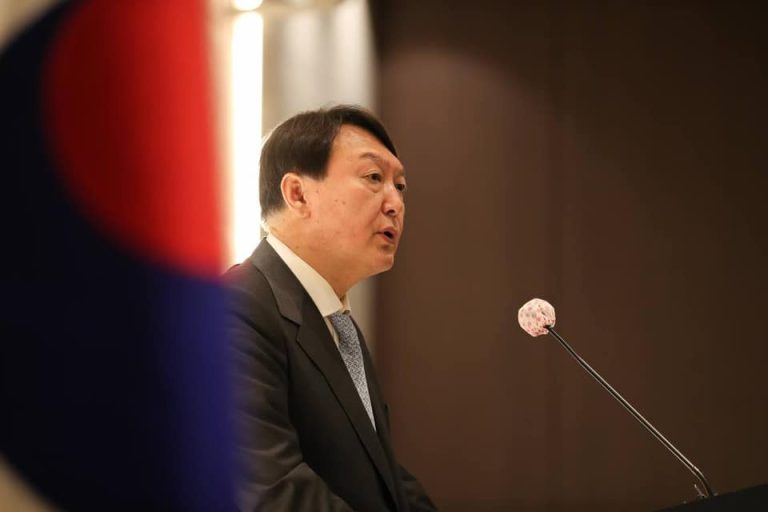In an unprecedented move, South Korea’s impeached president, Yoon Suk Yeol, was detained on Wednesday morning at his presidential residence in Seoul becoming the first sitting South Korean leader to be detained for questioning by criminal investigators.
The operation followed weeks of defiance from Yoon, who had resisted multiple summons for questioning over his controversial martial law declaration last month.
Authorities executed the arrest warrant after a dramatic confrontation at the compound.
The Corruption Investigation Office for High-Ranking Officials (CIO) confirmed Yoon’s detention after hundreds of law enforcement officers breached the premises.
In a pre-recorded video message, Yoon accused the government of political persecution, stating that “the rule of law has completely collapsed in this country.”
His lawyers had earlier attempted to negotiate a voluntary questioning process, but the anti-corruption agency rejected the proposal, citing the urgency of the investigation.
Yoon’s tense detention operation
The detention operation, conducted in the early hours, involved scaling barricades and removing makeshift blockades created by Yoon’s presidential security service.
Rows of buses parked at the compound’s entrance were cleared by police using ladders, while a gold-marked gate leading to Yoon’s residence was breached.
The tense standoff lasted hours, with Deputy Prime Minister Choi Sang-mok calling for calm and urging law enforcement to avoid clashes with the presidential security detail.
After securing the perimeter, investigators escorted Yoon into a convoy of black SUVs headed to the CIO’s headquarters in Gwacheon.
Martial law declaration sparks crisis
The crisis stems from Yoon’s declaration of martial law on December 3, during a standoff with the opposition-dominated National Assembly.
Yoon deployed military forces to block lawmakers from entering the Assembly, accusing them of thwarting his governance.
The martial law order was lifted within hours after lawmakers managed to convene and overturn the measure.
On December 14, the National Assembly impeached Yoon, suspending his presidential powers and accusing him of rebellion.
The Constitutional Court has since been deliberating whether to uphold the impeachment or reinstate Yoon.
South Korea divided over Yoon’s actions
Yoon’s detention has polarized the nation. Supporters gathered near his residence, decrying the investigation as unlawful and politically motivated.
Meanwhile, critics called for his imprisonment, arguing that his martial law declaration was an abuse of power.
The anti-corruption agency has accused Yoon of attempting to subvert the democratic process and has pledged to hold all individuals obstructing the investigation accountable.
The detention warrant, issued by the Seoul Western District Court, remains valid until January 21.
Constitutional Court holds the final say
As the nation watches, the Constitutional Court continues its proceedings.
While Yoon refused to attend the initial hearing on Tuesday, the trial will proceed, with the next session scheduled for Thursday.
South Korea’s political future hangs in the balance as the court deliberates a decision that could either restore Yoon to power or permanently remove him from office.
The post South Korea’s Yoon Suk Yeol detained in dramatic operation appeared first on Invezz

